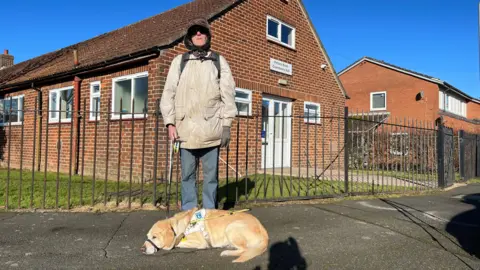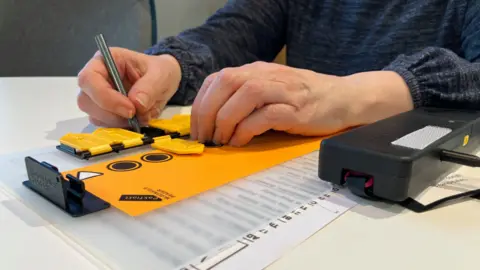'Sight loss aids would help me vote independently'
 BBC
BBCBlind and partially-sighted voters have welcomed proposals by their local MP to help them vote independently.
Carlisle Labour MP Julie Minns proposed a new law to ensure polling stations had audio and tactile voting aids.
Local people with sight loss described having to ask others to help them cast their vote and not being entirely sure of having marked the ballot paper correctly.
The government said it was exploring ways to improve the system. Cumberland Council, which runs elections in Carlisle, has been approached for comment.
John Atkinson, from Carlisle, is blind due to glaucoma and said he had used folds in the ballot paper as a guide to where to place his cross at last year's general election.
He said he could not "guarantee" he had voted for the candidate he intended, but thought he had done.
Of Minns' proposed new law, he said: "I think it will be a good thing, really, especially for myself - then I'll be able to do it more independently."
Susan Fox, from Brampton in the Carlisle constituency, needed help from her husband to vote last year and said the MP's proposal was "excellent".

Terri Balon, regional campaigns officer for RNIB in north-west England, said the charity was concerned some people with visual impairments were not voting because of the barriers they faced.
"People don't believe the system is accessible," she said
The charity said it had successfully trialled a device with a tactile template, a McGonagle Reader, that could be placed over a ballot paper.
A connected speaker or set of headphones announces the names of candidates.
Improving the system
A subsequent report by RNIB recommended returning officers provided such devices where needed and the charity said some electoral authorities had bought them.
The Ministry for Housing, Communities and Local Government said the government was committed to "making elections accessible" and it was exploring "ways to improve the system".
